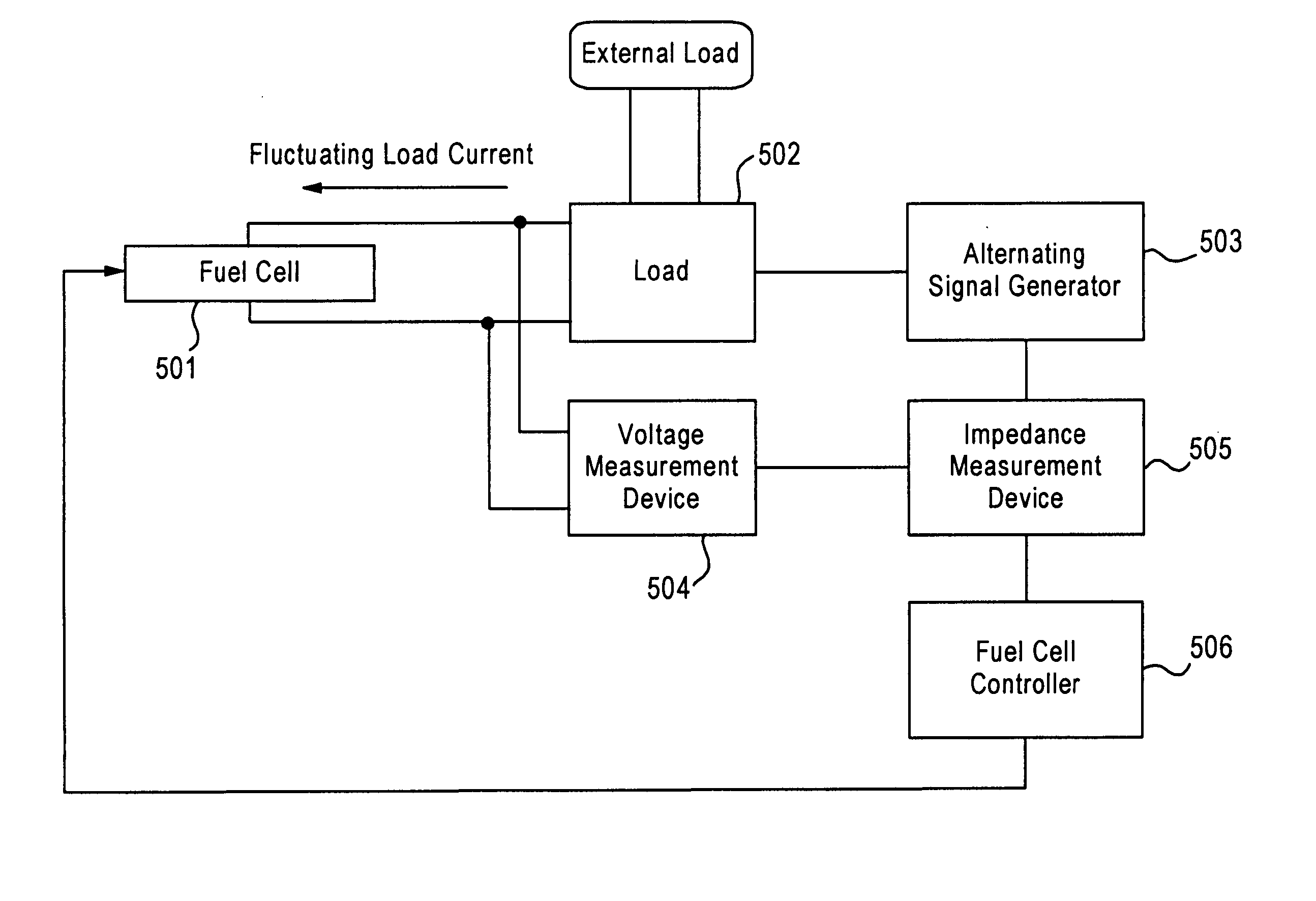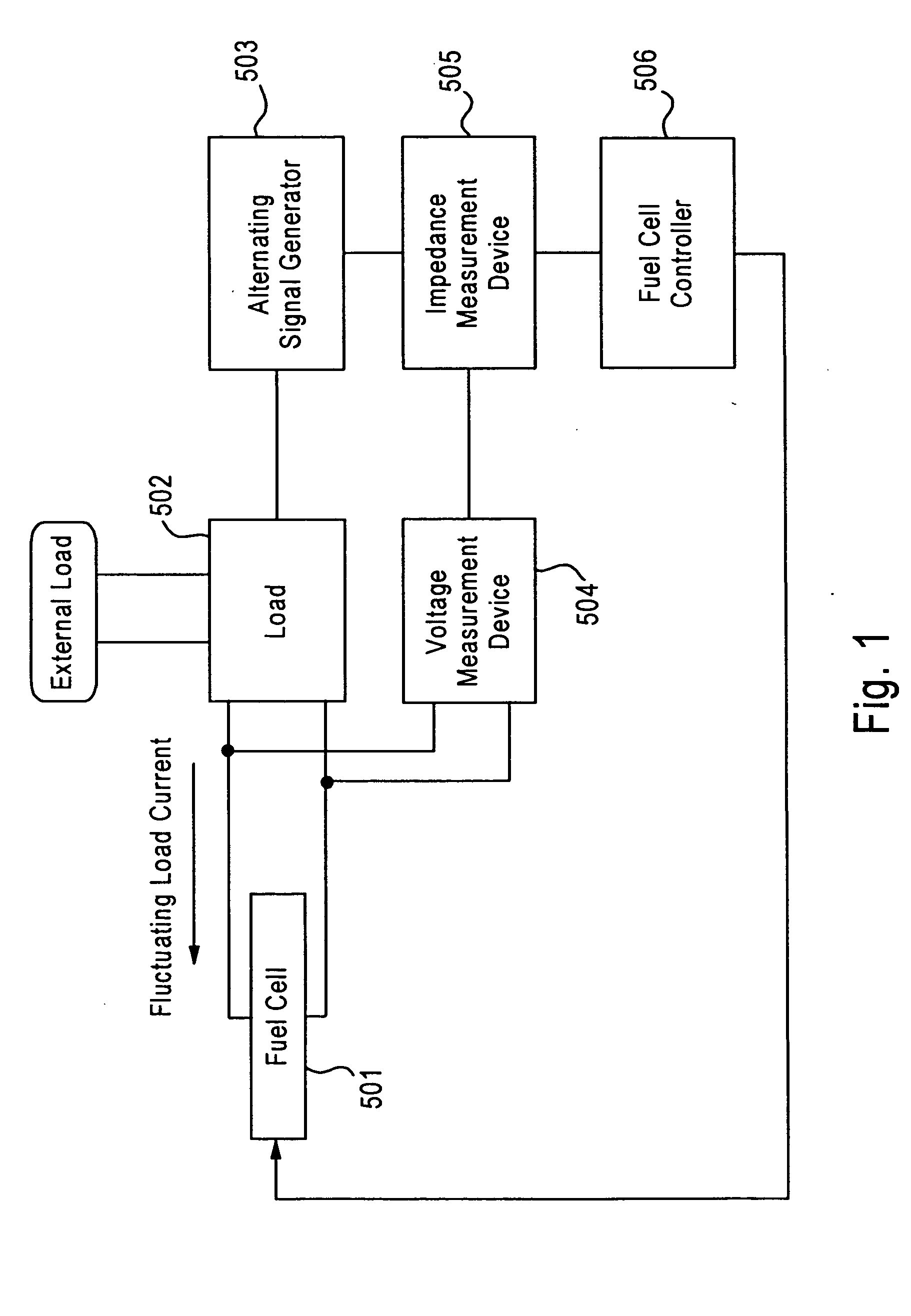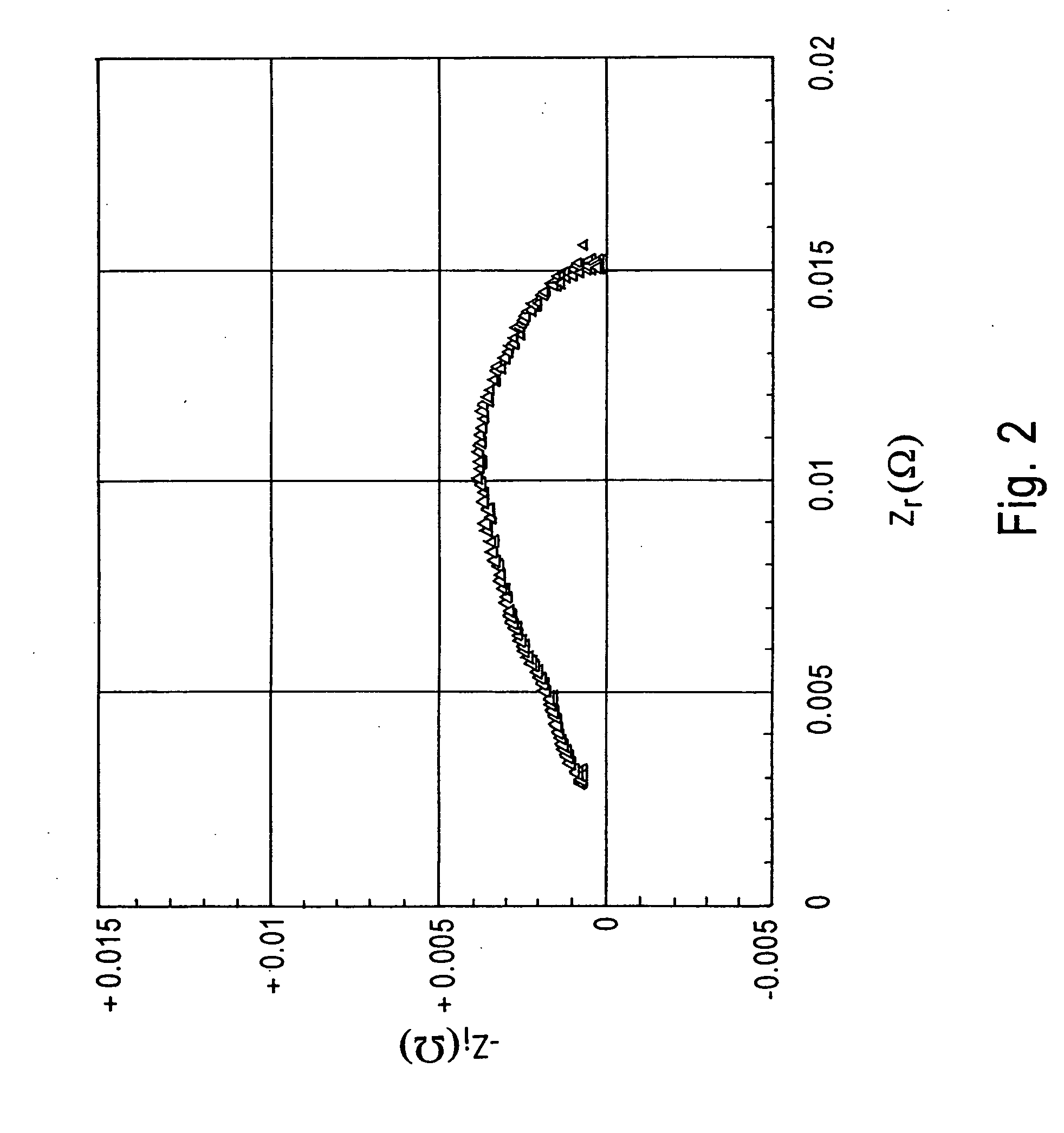Fuel cell system, and operation and program for same
a fuel cell and electric technology, applied in the field of electric fuel systems, can solve the problems of difficult to diagnose potential problems, difficult to judge whether the voltage decline of a fuel cell is caused, and difficult to do, so as to facilitate detection and analysis of voltages, increase the volume of air bleed, and easy to take appropriate action.
- Summary
- Abstract
- Description
- Claims
- Application Information
AI Technical Summary
Benefits of technology
Problems solved by technology
Method used
Image
Examples
example 1
[0174] The makings of the fuel cell electricity generating system in the Example 1:
[0175] First, a gas diffusion layer was created as follows: Immerse about 10 weight % of diffusive solution of Polytetrafluoroetheylene (Daikin Kogyou Lubron LDW-40) as dry weight on a carbon paper (Toure TGPH-060). Then, use a hot-air dryer to heat the paper to about 350° C. to dry the paper. Then, high ion molecule conductive layer was created from carbon powder and fluoride resin. In particular, prepare a dispersion liquid which is created from Denkablack of Denki Kagaku Kogyou as carbon powder with about 30 weight % of Polytetrafluoroethylene dispersion liquid (Daikin Kogyou Rubron LDW-40) as dry weight as the fluorine resin. Then, paint the prepared dispersion liquid on the dried carbon paper as previously described, and create a gas diffusion layer including a conductive layer containing a polymer by drying the dispersion liquid at about 350° C. by a hot-air dryer.
[0176] Then, a membrane-elect...
example 2
[0182] Fuel cells were created similar to Example 1, which were used to produce a fuel cell electricity generating system by using the same steps as Example 1. The same operations were carried out and the controls used were the same as FIGS. 7 to 9. However, in this example, the step of decreasing Uf (S30) and the step of increasing step Uf (S32) in FIG. 9 were not carried out.
[0183]FIG. 23 shows the cell voltage changes at different times of examples 2 to 6, and the one for example 2 is indicated by cell voltage 161. Even after 5000 hours from initially operating the system, the cell voltage 161 held at more than 0.70V.
example 3
[0184] Fuel cells were created similar to Example 1, which were used to produce a fuel cell electricity generating system of the first embodiment by using the same steps as Example 1. The same operations were carried out and the controls used were the same as FIGS. 7 to 9. However, in this example, the step of increasing the amount of air bleed (S25) and the step of increasing the amount of air bleed (S34) were ignored.
[0185]FIG. 23 shows a line 162 as the changes of the cell voltage of Example 3 as time passed. Even after 4500 hours from initially operating the system, the cell voltage 162 held at more than 0.70V.
PUM
| Property | Measurement | Unit |
|---|---|---|
| frequency | aaaaa | aaaaa |
| frequency | aaaaa | aaaaa |
| current density | aaaaa | aaaaa |
Abstract
Description
Claims
Application Information
 Login to View More
Login to View More - R&D
- Intellectual Property
- Life Sciences
- Materials
- Tech Scout
- Unparalleled Data Quality
- Higher Quality Content
- 60% Fewer Hallucinations
Browse by: Latest US Patents, China's latest patents, Technical Efficacy Thesaurus, Application Domain, Technology Topic, Popular Technical Reports.
© 2025 PatSnap. All rights reserved.Legal|Privacy policy|Modern Slavery Act Transparency Statement|Sitemap|About US| Contact US: help@patsnap.com



